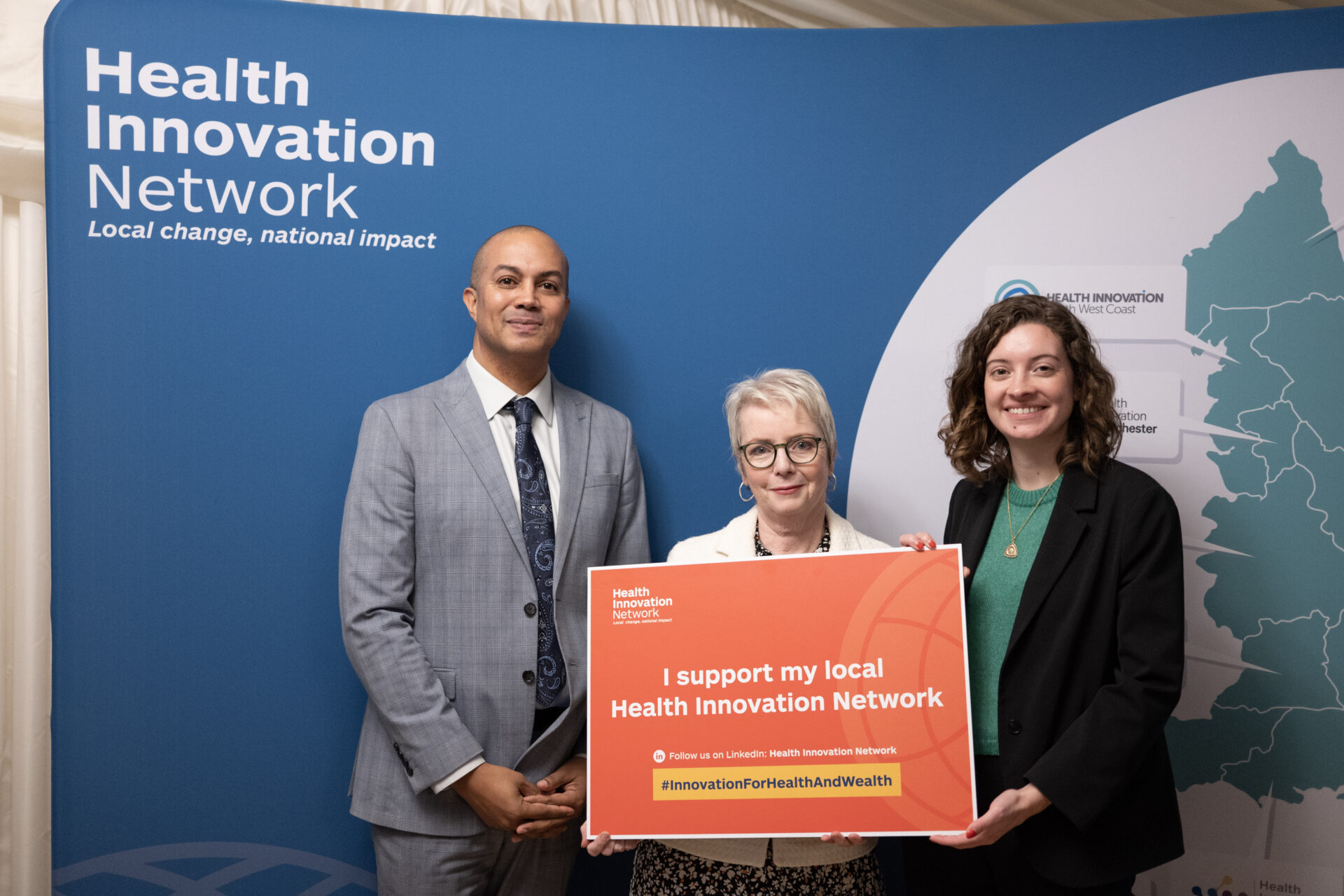Thousands of people across England are benefitting from improved access to diagnostics and treatments for asthma. To mark World Asthma Day (2 May), the AHSN Network is celebrating the achievements of two national programmes which have worked in partnership to transform asthma pathways.
Asthma is a common health condition, affecting more than 5.4 million people in the UK. It can have a huge impact on the lives of patients due to exacerbations, medication side-effects and life-threatening asthma attacks. The NHS spends £1.1 billion on asthma annually, around 90% of which is spent on medicines.
From April 2021 to March 2023, AHSNs in England supported the adoption and spread of two innovations under the Accelerated Access Collaborative’s (AAC) Rapid Uptake Products Programme: Fractional exhaled Nitric Oxide testing and Asthma Biologics.
Fractional exhaled Nitric Oxide (FeNO) tests are simple, non-invasive tests to measure the amount of nitric oxide in an exhaled breath – a biomarker for airway inflammation. FeNO testing can improve patient care by contributing to a faster and more effective diagnosis, alongside a clinical history and other tests, and can be used to monitor patient response to treatments.
Asthma Biologics are new treatments for patients with severe asthma. They work in a targeted way by disrupting pathways causing airways inflammation, helping to manage symptoms and reduce relapses. These therapies can transform patients’ lives by reducing long-term side effects of other treatments, such as steroids, and reduce the number of life-threatening asthma attacks.
Both innovations were selected after being identified as products that aligned with the NHS Long Term Plan’s key clinical priorities, but had a lower-than-expected uptake to date.
Key impacts:
- More than 1,200 new FeNO devices in use in primary care.
- An estimated 53% of Primary Care Networks in England now have access to FeNO testing.
- FeNO has supported the correct diagnosis of an estimated 58,000 new asthmatics faster and more accurately.
- More than 4,690 new patients initiated onto asthma biologics.
- Around 3,000 fewer patients are being prescribed 3g or more of prednisolone each month.
AHSNs worked within their individual systems to support asthma pathway improvements by providing clinical leadership, sharing best practice and developing supporting materials for those involved in asthma care. This included the creation of a package of educational resources for each innovation, including information documents, podcasts, posters, learning modules and webinars. The toolkits were designed in a practical way to support teams adopting and sustaining the use of FeNO and asthma biologics. They will remain available and accessible for free to NHS staff.
For clinicians and those delivering asthma care, significant support and training was provided across both FeNO and asthma biologics.
- More than 5,000 hours of specialist training was delivered to upskill those providing asthma care.
- Online resource toolkits for asthma biologics and FeNO have been accessed more than 33,000 times.
- 722 people joined five national FeNO collaboratives to share learning and best practice while more than 1,000 health care professionals attended webinars on asthma biologics.
Professor Gary Ford, Chief Executive of Oxford AHSN and Chair of the AHSN Network said: “Our asthma programmes have had significant impact on improving the lives of people with severe asthma across England. The programmes have focused on collaboration at a national, regional and local level across healthcare systems, industry partners, patients, and the third sector to support the integration of both FeNO and asthma biologics into everyday practice so that more patients can benefit from these life-changing innovations.”
Dr Andy Whittamore, GP, Clinical Lead Asthma UK and British Lung Foundation, and joint FeNO national clinical lead, said: “During the course of the programme we have seen a transformative approach to the use of FeNO testing in primary care and we estimate we’ve supported the correct diagnosis of 58,000 new asthmatics. There are now hundreds of additional FeNO devices in use across services in England, meaning more patients have access to quick, simple and accurate testing.”
Beverley Bostock, Advanced Nurse Practitioner at Mann Surgery, Gloucestershire, PCN Nurse Coordinator in Hereford and Asthma Biologics Clinical Champion said: “Asthma biologics are lifechanging for those with severe asthma. By increasing access to these treatments, AHSNs have helped more people have an improved quality of life with fewer asthma attacks, asthma-related hospital admissions and side effects of other treatments.”
Find out more about the programmes and access the FeNO and Asthma Biologics toolkits.

Join us on 11 and 12 June in Manchester to find out how the Health Innovation Network is improving health and driving wealth through health innovation. This year we’ll be joined on our stand by 18 Network-supported innovators, showcasing innovations which are helping to deliver the Government’s three shifts for the NHS and solve some [...]

The Health Innovation Network is delighted to announce the launch of Innovation Insights, a brand-new webinar series designed to highlight the latest in health innovation, offering attendees valuable insights into the adoption and spread of innovation within the health and care landscape. Each interactive webinar will feature: Expert presentations: Delivered by thought leaders across [...]

The Health Innovation Network, at an event sponsored by Sarah Coombes MP, brought together parliamentarians including Health Minister Karin Smyth MP and Chair of the Science, Innovation and Technology Committee, Chi Onwurah MP to meet with six innovators supported by health innovation networks across the country and their NHS partners. At the Meet the Innovators: [...]






